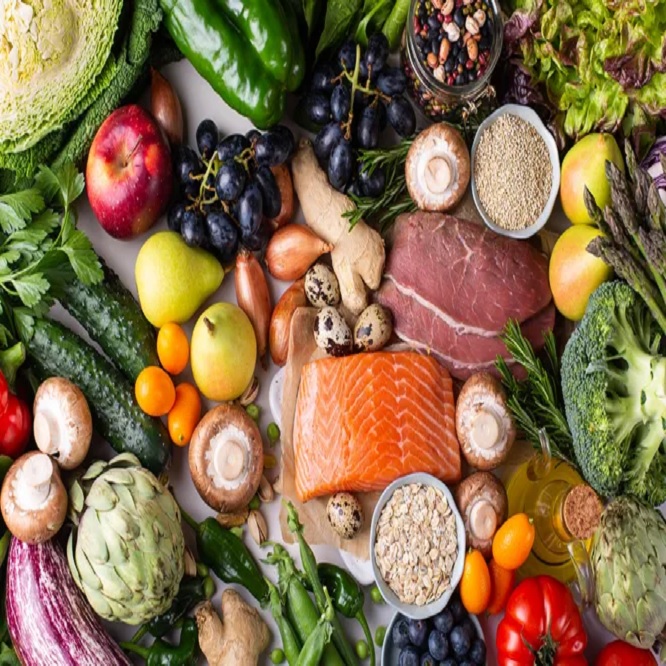
The Top 25 Most Popular Diets for Women’s Mental, Physical and Sexual Health.
- Carnivore: This extreme diet consists solely of animal products, including meat, fish, eggs, and dairy, while excluding all plant-based foods. Advocates claim benefits such as improved mental clarity, weight loss, and relief from autoimmune conditions, although concerns exist regarding nutrient deficiencies and long-term health risks.
- Keto (Ketogenic): The ketogenic diet is high in fat, moderate in protein, and very low in carbohydrates, typically restricting carb intake to 20-50 grams per day to induce a metabolic state called ketosis. Ketosis involves the body burning fat for fuel instead of carbohydrates, leading to rapid weight loss, improved blood sugar control, and increased mental focus. However, some people may experience initial side effects such as “keto flu” and long-term concerns about nutrient adequacy.
- Mediterranean: Inspired by the traditional dietary patterns of countries bordering the Mediterranean Sea, this diet emphasizes whole, minimally processed foods such as fruits, vegetables, whole grains, legumes, nuts, seeds, and olive oil. Moderate consumption of fish, poultry, dairy, and red wine is also encouraged. The Mediterranean diet is renowned for its numerous health benefits, including reduced risk of heart disease, stroke, and cognitive decline.
- Vegan: Veganism excludes all animal products, including meat, dairy, eggs, and honey, while emphasizing plant-based foods such as fruits, vegetables, grains, legumes, nuts, and seeds. Beyond ethical and environmental considerations, vegan diets are associated with lower rates of obesity, heart disease, hypertension, and type 2 diabetes. However, careful planning is necessary to ensure adequate intake of key nutrients such as protein, iron, calcium, vitamin B12, and omega-3 fatty acids.
- Paleo (Paleolithic): The paleo diet seeks to emulate the dietary patterns of our ancient ancestors from the Paleolithic era, focusing on whole, unprocessed foods such as lean meats, fish, fruits, vegetables, nuts, and seeds, while excluding grains, legumes, dairy, refined sugars, and processed foods. Advocates claim benefits such as weight loss, improved blood sugar control, and reduced inflammation, although scientific evidence supporting these claims is mixed.
- Detox: Detox diets aim to cleanse the body of toxins by eliminating certain foods or food groups, fasting, or consuming specific detoxifying foods and beverages. Common components include fruits, vegetables, water, herbal teas, and juices, while processed foods, caffeine, alcohol, and added sugars are typically avoided. While proponents claim benefits such as improved digestion, increased energy, and weight loss, the scientific evidence supporting detox diets is limited, and some experts caution against potential risks such as nutrient deficiencies and metabolic disruptions.
- Flexitarian: The flexitarian diet is a flexible approach to vegetarianism that encourages predominantly plant-based eating while allowing for occasional consumption of meat, poultry, fish, and other animal products. Flexitarians prioritize whole, nutrient-dense foods while limiting processed and high-calorie items. This dietary pattern offers the health benefits associated with plant-based diets, such as reduced risk of chronic diseases, while providing flexibility and sustainability for individuals who may not want to commit to a strict vegetarian or vegan lifestyle.
- Whole30: Whole30 is a 30-day elimination diet that removes potentially inflammatory or allergenic foods such as grains, legumes, dairy, added sugars, and processed foods. Participants are encouraged to eat whole, nutrient-dense foods such as meat, fish, eggs, vegetables, fruits, nuts, and seeds. The program aims to reset the body, improve digestion, reduce inflammation, and identify potential food sensitivities or triggers. After the 30-day period, participants gradually reintroduce eliminated foods to determine their individual tolerance and how certain foods affect their health and well-being.
- DASH (Dietary Approaches to Stop Hypertension): Originally developed to lower blood pressure, the DASH diet emphasizes fruits, vegetables, whole grains, lean proteins, and low-fat dairy products while limiting sodium, saturated fats, and added sugars. The diet is rich in potassium, magnesium, calcium, fiber, and antioxidants, which are associated with numerous health benefits, including reduced risk of hypertension, heart disease, stroke, and other chronic conditions.
- Weight Watchers (WW): Formerly known as Weight Watchers, WW is a popular commercial weight loss program that assigns point values to foods based on their nutritional content, with an emphasis on portion control, balanced nutrition, and behavioral strategies for sustainable weight loss. Members are encouraged to follow a personalized eating plan that aligns with their goals, preferences, and lifestyle, with support from coaches, online resources, and community meetings. The program promotes flexibility, accountability, and long-term success through its holistic approach to weight management and healthy living.
- Zone: The Zone diet, developed by Dr. Barry Sears, advocates for a specific balance of macronutrients at each meal to regulate insulin levels, control inflammation, and promote weight loss. Meals are typically structured around a ratio of 40% carbohydrates, 30% protein, and 30% fat, with an emphasis on low-glycemic carbohydrates, lean proteins, and healthy fats. The Zone diet aims to optimize hormonal balance and metabolic function by controlling the release of insulin, a hormone that regulates blood sugar levels and fat storage. Advocates claim benefits such as improved body composition, enhanced athletic performance, and reduced risk of chronic diseases.
- Atkins: The Atkins diet is a low-carbohydrate, high-fat diet that promotes weight loss and metabolic health through carbohydrate restriction. It consists of four phases: Induction, Ongoing Weight Loss, Pre-Maintenance, and Maintenance, each with specific guidelines for carb intake and food choices. By limiting carbohydrates and promoting fat burning for fuel, the Atkins diet aims to induce ketosis, a metabolic state associated with rapid weight loss and reduced appetite. Advocates claim benefits such as improved blood sugar control, increased energy, and reduced cravings, although concerns exist regarding potential side effects and long-term sustainability.
- Intermittent Fasting: Intermittent fasting involves cycling between periods of eating and fasting, with popular methods including the 16/8 method (fasting for 16 hours and eating within an 8-hour window), the 5:2 method (eating normally for five days and restricting calories for two non-consecutive days), and alternate-day fasting (alternating between normal eating days and fasting days). Intermittent fasting is believed to promote weight loss, improve metabolic health, increase longevity, and enhance cognitive function by inducing cellular repair processes, optimizing hormone levels, and regulating gene expression. However, individual responses to intermittent fasting may vary, and more research is needed to fully understand its long-term effects on health and well-being.
- Raw Food: Raw foodism promotes the consumption of uncooked, unprocessed, and predominantly plant-based foods, including fruits, vegetables, nuts, seeds, sprouted grains, and legumes. Proponents believe that raw foods retain their natural enzymes, vitamins, minerals, and phytonutrients, which can be destroyed or diminished through cooking and processing. Raw food diets are associated with numerous health benefits, including increased energy, improved digestion, weight loss, reduced inflammation, and lower risk of chronic diseases. However, they may also pose challenges such as nutrient deficiencies, food safety concerns, and limited food choices.
- Volumetrics: Developed by nutritionist Barbara Rolls, the volumetrics diet emphasizes consuming foods that are low in energy density (calories per gram) but high in volume, such as fruits, vegetables, soups, and broth-based dishes. By filling up on these low-calorie, nutrient-dense foods, individuals can satisfy their hunger and reduce overall calorie intake without feeling deprived. The volumetrics diet promotes weight loss, improved satiety, and better nutrient intake by encouraging a diet rich in fiber, water, and essential nutrients, while minimizing energy-dense foods such as fried foods, sweets, and fatty snacks.
- South Beach: The South Beach diet was developed by cardiologist Dr. Arthur Agatston as a heart-healthy, low-carbohydrate eating plan that emphasizes lean proteins, healthy fats, and low-glycemic carbohydrates. It consists of three phases: Phase 1 (elimination of sugars, starches, and alcohol to induce rapid weight loss), Phase 2 (gradual reintroduction of carbohydrates to achieve steady weight loss), and Phase 3 (maintenance of weight loss and healthy eating habits). The South Beach diet aims to stabilize blood sugar levels, reduce cravings, and promote long-term weight management through its balanced approach to nutrition, portion control, and lifestyle modification.
- Ornish: Developed by Dr. Dean Ornish, the Ornish diet is a low-fat, vegetarian eating plan that emphasizes whole, unprocessed foods such as fruits, vegetables, whole grains, legumes, and soy products while limiting fats, oils, refined carbohydrates, and animal products. The diet is accompanied by regular exercise, stress management techniques, and social support to optimize heart health, reverse heart disease, and improve overall well-being. The Ornish diet is rich in fiber, vitamins, minerals, and antioxidants, which are associated with numerous health benefits, including reduced risk of heart disease, hypertension, diabetes, and certain cancers.
- TLC (Therapeutic Lifestyle Changes): The TLC diet was developed by the National Cholesterol Education Program (NCEP) to lower cholesterol levels and reduce the risk of heart disease through dietary modifications and lifestyle changes. It emphasizes reducing saturated fat, trans fat, and cholesterol intake while increasing consumption of fruits, vegetables, whole grains, lean proteins, and low-fat dairy products. The TLC diet also encourages weight management, regular physical activity, smoking cessation, and moderation of alcohol consumption to optimize cardiovascular health and prevent or manage chronic conditions such as hypertension and diabetes.
- Nutrisystem: Nutrisystem is a commercial weight loss program that provides portion-controlled meals, snacks, and desserts delivered to your doorstep. The program offers a variety of meal options, including breakfasts, lunches, dinners, and snacks, designed to promote weight loss and healthy eating habits. Nutrisystem meals are formulated to be balanced in macronutrients (carbohydrates, protein, and fat) and rich in essential nutrients, vitamins, and minerals, while also being convenient and easy to prepare. Participants also receive support from dietitians, counselors, and online resources to help them achieve their weight loss goals and maintain long-term success.
- Jenny Craig: Jenny Craig is a commercial weight loss program that offers portion-controlled meals, snacks, and desserts, as well as personalized support from consultants and online tools to help individuals lose weight and improve their health. Participants follow a structured meal plan that includes a variety of options for breakfast, lunch, dinner, and snacks, with an emphasis on portion control, balanced nutrition, and behavior modification. Jenny Craig also provides guidance on meal planning, grocery shopping, dining out, and incorporating physical activity into daily routines to promote sustainable weight loss and lifestyle changes.
- Medifast: Medifast is a commercial weight loss program that offers portion-controlled meals, shakes, bars, soups, and snacks designed to promote rapid weight loss and improve metabolic health. Participants consume five Medifast meals and one lean and green meal per day, with options for additional snacks and desserts as needed. The program provides balanced nutrition while controlling calorie intake to induce fat burning and preserve lean muscle mass. Medifast also offers support from dietitians, coaches, and an online community to help individuals achieve their weight loss goals and maintain long-term success.
- HMR (Health Management Resources): HMR is a commercial weight loss program that provides meal replacement shakes, entrees, soups, bars, and snacks designed to promote rapid weight loss through calorie restriction and portion control. Participants replace traditional meals with HMR products and receive guidance on meal planning, physical activity, and behavior modification to support weight loss and healthy lifestyle changes. HMR also offers support from dietitians, counselors, and online resources to help individuals achieve their weight loss goals and maintain long-term success.
- SlimFast: SlimFast is a commercial weight loss program that offers meal replacement shakes, bars, snacks, and smoothie mixes designed to promote weight loss through calorie control and portion management. Participants replace two meals and one snack per day with SlimFast products and consume a balanced meal and additional snacks as needed. The program provides convenient and portable options for busy individuals looking to lose weight and improve their health. SlimFast also offers support from dietitians, counselors, and an online community to help individuals achieve their weight loss goals and maintain long-term success.
- Optavia: Optavia is a commercial weight loss program that offers portion-controlled meals, snacks, and desserts, as well as coaching support and behavior modification techniques to help individuals lose weight and adopt healthy habits. Participants follow a structured meal plan that includes a variety of options for breakfast, lunch, dinner, and snacks, with an emphasis on portion control, balanced nutrition, and frequent eating to support metabolism and satiety. Optavia also provides guidance on meal planning, grocery shopping, dining out, and incorporating physical activity into daily routines to promote sustainable weight loss and lifestyle changes.
- Spark Solution: The Spark Solution is a two-week diet plan developed by the creators of SparkPeople.com, a popular online weight loss and fitness community. The program emphasizes whole, nutrient-dense foods such as fruits, vegetables, lean proteins, whole grains, and healthy fats, while also incorporating regular exercise and behavior modification techniques to support weight loss and improve overall health. Participants follow a structured meal plan that includes recipes, meal ideas, and portion control guidelines, as well as guidance on goal setting, tracking progress, and staying motivated. The Spark Solution aims to jump-start weight loss, establish healthy habits, and provide tools for long-term success in achieving and maintaining a healthy weight and lifestyle.






